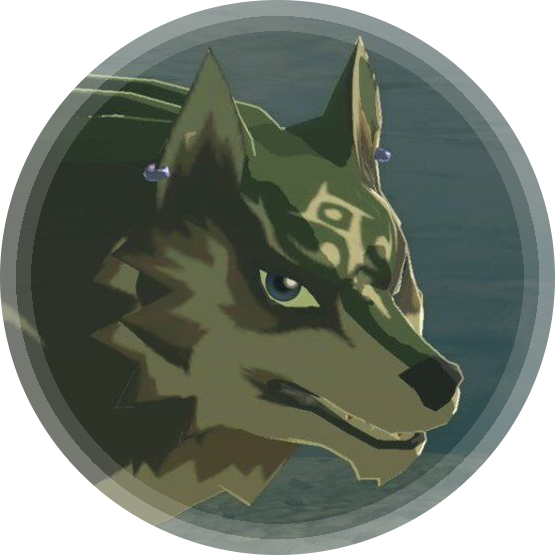- original source: https://www.tumblr.com/firebirdeternal/616605850794065920/you-know-whats-more-fun-than-worldbuilding-that
The post, in case you don’t want to click on an offsite link:
You know what’s more fun than worldbuilding that makes some fantasy races EEEEVIIIIIIILLLLL???
Worldbuilding that gives the different races cultural differences that help explain why there’s a lot of conflict between them:
Goblin culture doesn’t have a concept of “Property”. A stick on the ground and a tool in a locked shed are equally up for grabs if a thing needs doing. They casually take and leave things all over their communities, eat from communal pots, and genuinely Do Not Understand why the Core Races are so Angry and prone to Violence all the time.
Consequently Goblins who live near Core communities develop a reputation as “Thieves” despite not even having a word for that. (The closest word they have is more like “Greedy” and it means a person that hides things so nobody else can use them, and it’s a surefire fight-starter to call a Goblin that)
Common Orc Spiritual beliefs hold that a Soul can only grow stronger by overcoming Challenges in life, and see intruding on another person’s Challenge unasked for as not just Rude, but Deeply Harmful. You’re Stealing their chance to Grow. Asking for help is deeply personal and doing so can be both a way to grow closer with them or a too-personal intrusion, depending on your existing relationship with them. An exception is Children, as far as most Orcs are concerned, all Children are fundamentally the responsibility of the Whole Community, regardless of whose child they are, or even if said child is an Orc at all.
This means that Orcs who live near Core neighbors often seem Rude and Standoffish if not outright hostile, because they neither ask for nor offer aid even in times of trouble, and respond to unasked for aid themselves with Anger. There are even rumors that they Steal Children, because if an Orc finds a child lost in the woods they’re pretty much immediately going to start feeding it, and if they can’t find where to bring it back to, or it doesn’t seem to be well cared for, they’re just gonna keep it.*
I just love the idea. It’s a lot more believable and nuanced than the “this race is inheritely evil/good/dumb/advanced for no particular reason” some RPGs pull off, and makes certain allegedly “evil” races actually playable if you’re not relying on a system that already has them as playable characters.
Do you have any similar homebrew concepts for your versions of Goblins, Kobolds, Orcs, Dwarves etc.?


I feel like some of the D&D writers have done a fantastic job of this, even where they have still tacked on the moniker of ‘evil’ as it fits with their system of alignment and planar cosmology. The drow are an especially well developed example of this, essentially taking all the assumptions of a traditional fantasy society and turning them on their heads.
The drow are certainly evil, but they’re not simply evil. They have their own set of values that they typically adhere to pretty fanatically, and a rather alien culture to go with it. The drow have no word for love (ssinssrigg translates to something closer to a possessive fondness), they view successful betrayal as virtuous, and ultimately the advancement of personal power for the glory of Lolth is their greatest ideal. They eat weird lichens, giant crickets, and cave cattle, and drink poison for fun. Despite typically leaning toward chaotic evil, they’re tied into this strict (if fragile) hierarchy that’s ultimately the most important factor in most of their lives.
The thing that jumps right out, of course, is the inversion of the typical gendered power dynamic in fantasy settings in the form of a violent and repressive matriarchy. This is something we literally do not see anywhere on Earth, and which reverses the relationship with institutionalized power on the basis of gender that we typically encounter in our own lives. While I don’t think it serves as any sort of decent example of a matriarchal power structure, I do think that that inversion has some value for bringing the backwardness of our own customs to light.
That, to me, is part of the fun of playing evil creatures: being able to take our own presumptions and shed a light on them from a different direction to make them a little less certain. This is something I tend to lean into with kobolds, goblins, and other similar creatures. To a kobold, their way of life is normal. The world is a dangerous place full of hateful beings that will kill them on sight, why wouldn’t they kill them first, take their stuff, and eat them? A human might protest that kobolds are only exterminated because of their violence toward humanoids, but it becomes something of a circular argument. Besides, a kobold may reason, humans hunt and kill and eat just like we do. What makes them so special? Clearing forests for roads? Indiscriminate slaughter of anything that isn’t compatible with trade and cities?
It may largely boil down to whataboutism in the respect of actually morally defending a kobold, but it does serve as an angle for examining the usually unexamined behavior of adventurers and civilization at large.
Oh. Also. This person’s proposed description of goblins are literally just kender. People in Dragonlance tend to treat them more like obnoxious children with poor impulse control than like monsters.
So … Lolth is Ayn Rand?
Half my understanding of Ayn Rand comes from Robert Anton Wilson’s parody of her, but just going based on that I’d say the misogyny kind of rules her out.
That’s the problem with going from a parody. Read the ORIGINAL parody: Ayn Rand’s works. (She’s her own parody.) Atlas Shrugged is filled to the brim with casual misogyny … held up as virtue. 'Cause that woman wuz cray-cray.
RAW actually covered that bit. But nah, I think I’m cool.